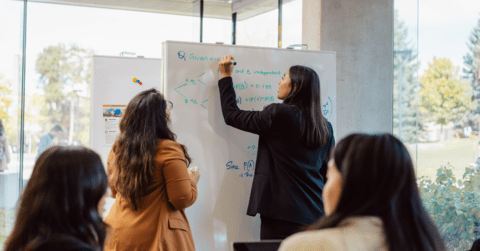How can work-integrated learning help contribute to economic recovery? | Hire Waterloo
Work-integrated learning (WIL) and economic recovery were key themes at the recent (World Association of Co-operative Education (WACE) Conference in Waterloo. A panel of employers shared insights about the potential impact that future-ready talent, like co-op students, can have on the economy. Healthcare of Ontario Pension Plan (HOOPP), Manulife and Deloitte shared their experiences with WIL and how it can help contribute to economic recovery. The University of Waterloo’s Co-operative and Experiential Education (CEE) unit hosted the conference on June 28-30, 2023.

